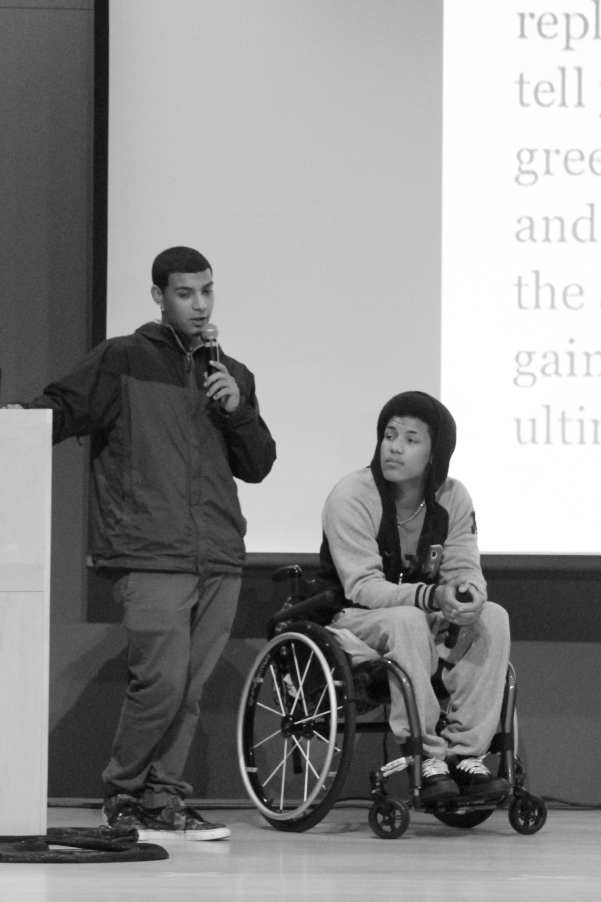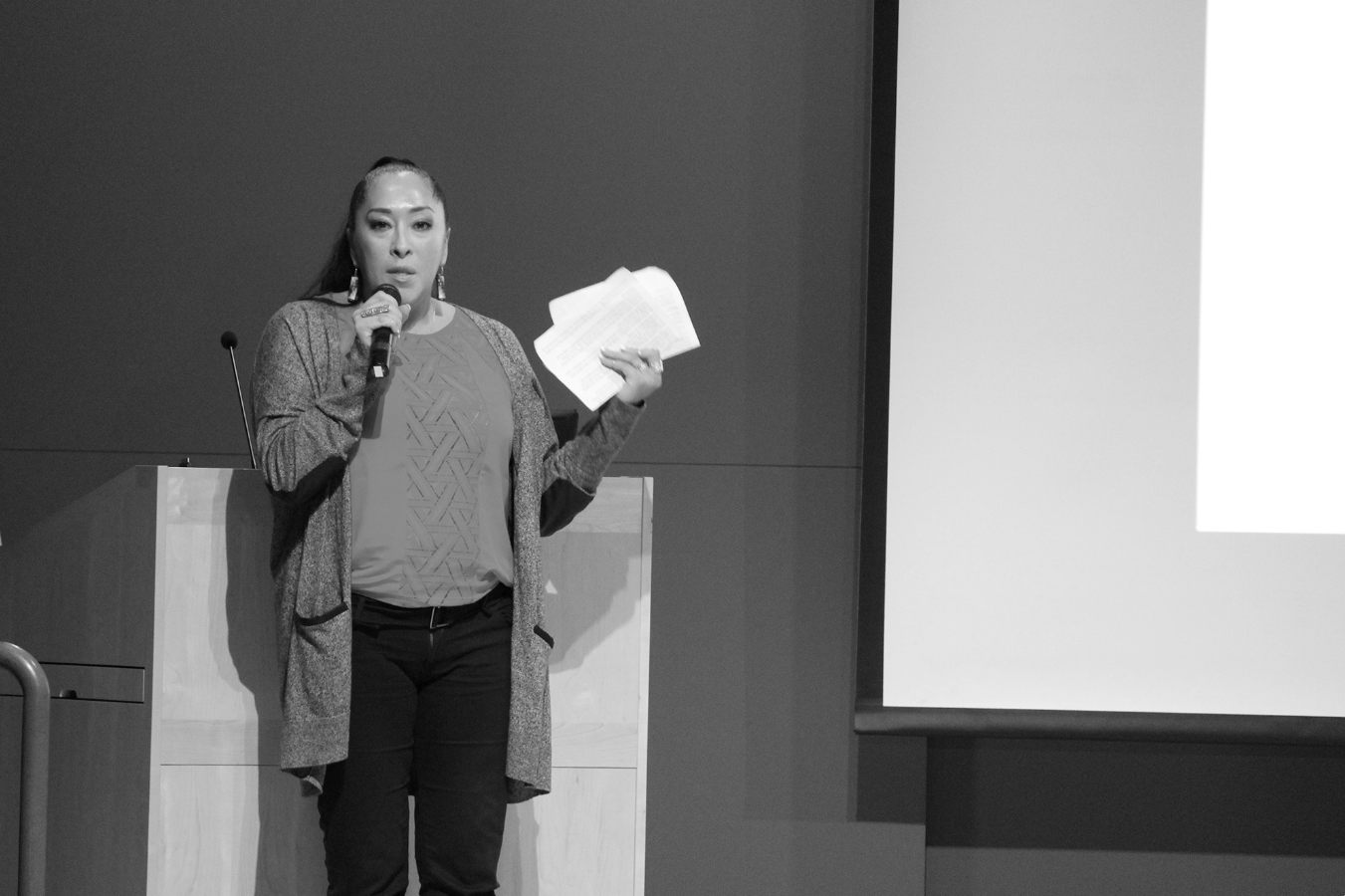“Until we undo racism, we will all continue to deal with oppression,” said Nikkita Oliver as she closed her powerful speech to rallying cries from the audience. On Nov. 2 Moral Monday’s Black Lives Matter event held by PechaKucha Seattle in Pigott Auditorium gathered a crowd full of students, faculty and members of the community.

Andrew Thompson and Bryson Chaplin spoke about their experience with police brutality at the PechaKucha Moral Monday’s event on November 2nd.
PechaKucha Seattle is a branch of the international PechaKucha Night organization, started in Tokyo in 2003. PechaKucha nights are organized in a 20×20 format: speakers have twenty slides and they can speak to each of those slides for 20 seconds, resulting in six minute and 40 second presentations. Ana Maria Pinto da Silva, the founder of the Seattle chapter of PechaKucha, sees these events as an important and vital way for community to rally together.
“The Black Lives Matter movement is one of the most important national and international movements that we have, and it’s really an honor to create a space for these conversations to be happening in our community,” Pinto de Silva said, “It’s one mechanism and an important mechanism for helping to create transformation that is necessary in our community.”
The evening was packed with 14 presenters, ranging from writers to photographers and more. Prominent speakers included Andre Thompson and Bryson Chaplin—victims of police brutality from Olympia—as well as Mara Jacqueline Willard and Marissa Johnson, who made international headlines for stopping the Bernie Sanders rally in Seattle over the summer. All these speakers, ranging in age, background and occupation, brought their own fresh viewpoints to the Black Lives Matter movement, connecting it to new ideas and new perspectives.
One such speaker was Sarra Tekola, a student at the University of Washington, who has used the Black Lives Matter movement to bring the university community together in various events, such as the Check Your Privilege Block Party, which sought to end racism in fraternities and help to push University of Washington to divest from fossil fuels. Another speaker was Cheyenne Brashear, a high school student who discussed how Black Lives Matter can help turn people away from the stereotype of the “token black student” or “token black coworker”. She explained that these terms reinforce feelings of loneliness in those individuals; that inclusion is not integration and how being diverse is a stagnant goal.
Tyrone Brown, the coordinator of Moral Mondays at Seattle U, sees these events as a way of not only furthering the Black Lives Matter movement but keeping community together.
“It’s kind of an opportunity to bring people who are part of the movement together… to have a receptive audience to the variety of things that they’ll be talking about and the diversity and the complexity of the movement and those who are involved with it,” Brown said.
As the night came to a close, audience members and speakers alike had much to think over. Natch Ohno, a Senior Jesuit from Seattle U, summarized the evening clearly with one simple statement, “All lives matter when Black Lives Matter.”
Editor may be reached at news@su-spectator.com.








